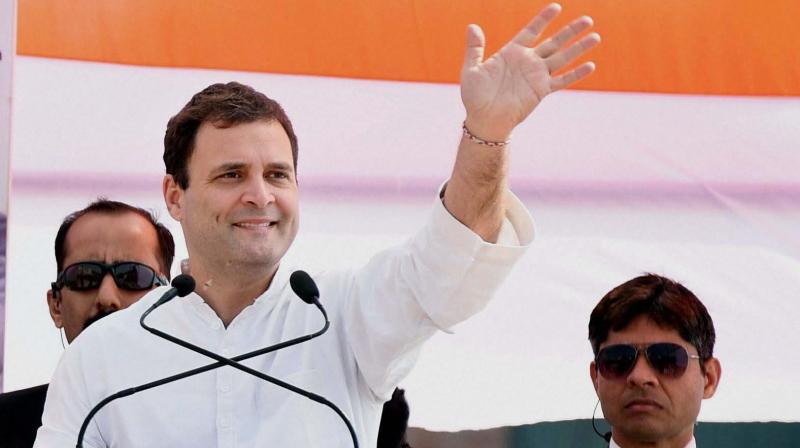
File Picture Courtesy : The Asian Age
Keeping up his attack on the government over the Goods and Services Tax (GST), Congress vice president Rahul Gandhi has said his party will not allow imposition of the “Gabbar Singh Tax” and asked the Centre to do some course correction “shedding arrogance”.
Taking to Twitter, he also said that the government cannot break the back of small and medium size enterprises in the country, crush the informal sector and destroy millions of jobs.
Gandhi’s remarks come in the wake of the GST Council meeting held in Guwahati where it was decided that tax rate on a wide range of mass use items would be reduced.
“We will not allow BJP to impose a Gabbar Singh Tax on India. They cannot break the back of the small and medium businesses, crush the informal sector and destroy millions of jobs. #GSTCouncilMeet,” he tweeted.
We will not allow BJP to impose a Gabbar Singh Tax on India. They cannot break the back of the small and medium businesses, crush the informal sector and destroy millions of jobs. #GSTCouncilMeet
— Office of RG (@OfficeOfRG) November 10, 2017
He suggested the government to give the country a “genuine simple tax”. The government, he said, should not “waste time” of the country by allegedly engaging in lip service.
“…acknowledge your incompetence, shed your arrogance and listen to the people of India,” he said on the micro- blogging site.
Some Suggestions
1. Correct the fundamental flaw in GST architecture to give India a Genuine Simple Tax.
2. Don’t waste India’s time with lip service.
3. Acknowledge your incompetence, shed your arrogance and listen to the people of India.
— Office of RG (@OfficeOfRG) November 10, 2017
The GST Council decided to reduce tax rate on items ranging from chewing gums to detergents — to 18 per cent from current 28 per cent.
The all-powerful council pruned the list of items attracting the top 28 per cent tax rate to just 50 from 227 previously.
In effect, the council cut rates on 177 goods.
The GST, implemented “from July 1, has five tax slabs of 0 per cent, 5 per cent, 12 per cent, 18 per cent and 28 per cent.
Read more


















